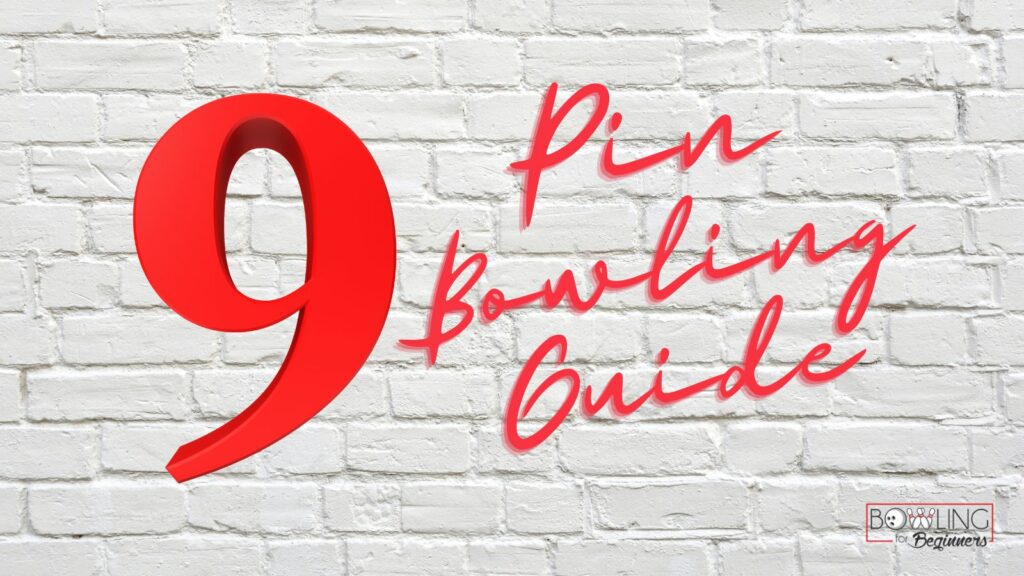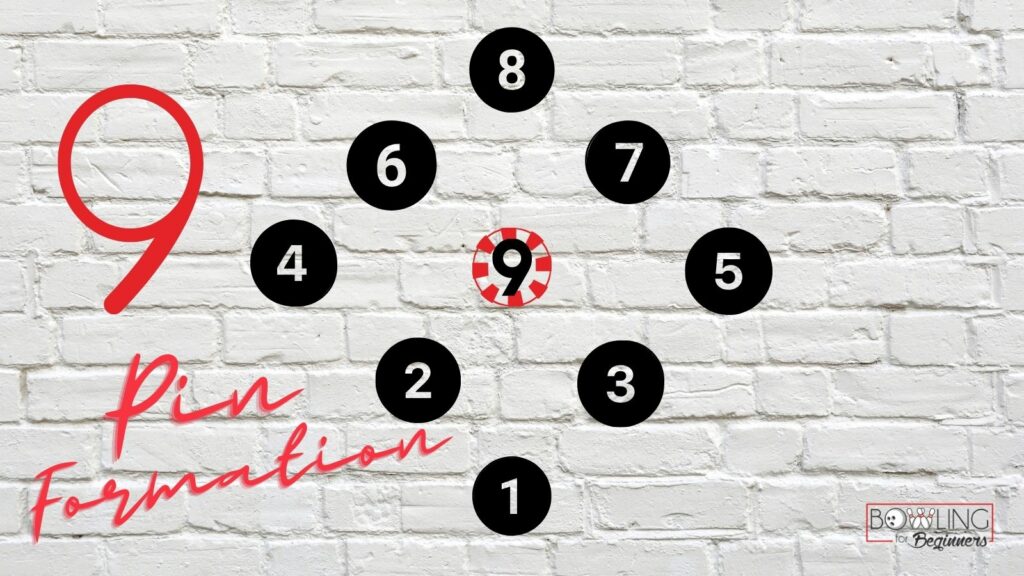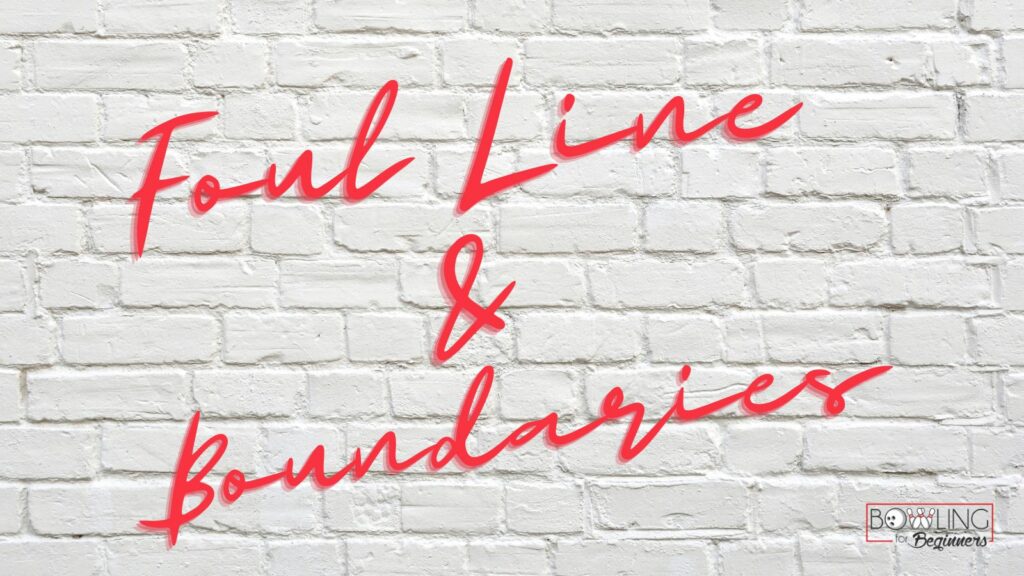
Nine pin bowling is a type of bowling many people have never heard about - it’s very different from the type of bowling you’re probably used to. But it can be a ton of fun and present you with a unique challenge. In this article, we’ll share with you what nine pin bowling is and frame it in a way that all beginners can understand.
Let’s get right into it!
Contents
What Is Nine Pin Bowling?
Nine pin bowling is a target sport that uses only 9 pins and a small ball. Its standardized rules were created by the American Bowling Congress (ABC) in 1895. Typically played in teams, the objective is to earn the maximum points by knocking down all the pins.
As history goes, "Kegeln" or Kegels, a popular form of bowling in Germany, was introduced to the states by German immigrants as Ninepin bowling. It was the go-to form of social gathering during colonial times. After states deemed bowling illegal, during the 1800s, Ninepins remained popular in predominantly German communities.
Many states got around the ban by simply adding an additional pin. The new addition turned nine pins into ten pins, except for Texas. Texas didn't ban nine-pin bowling. Instead, it remained legal but was subject to an annual tax.
Let's dive more into the equipment, rules, and scoring below.
Key Takeaways
Nine Pin Bowling Basics:
- Target sport with nine pins and a small ball
- Historically introduced by German immigrants to the United States
- Typically played in teams of 6 people
Equipment and Rules:
- Unique ball without finger holes; requires a different technique
- Pins arranged in a diamond formation, taller than ten-pin bowling pins
- Objective: Knock down as many pins as possible without hitting the center (Kingpin)
- Scoring: A "ringer" (knocking down all pins except Kingpin) is worth 12 points
Game Structure:
- No automatic pinsetters; pins are reset under specific conditions
- The foul line divides the approach from the lane; nine-pin bowling has no gutters
- 6 frames per game
- Each player gets two rolls per frame
Historical Significance:
- Nine-pin bowling was banned in many states due to its association with gambling
- Texas remained an exception, keeping nine-pin bowling alive in its original form
Current Status:
- Only a few active nine-pin leagues remain, primarily in Texas
NinePin Bowling Equipment
The nine pin bowling equipment has unique quirks that set it apart from other bowling games like ten-pin or duckpin. Let's delve into the specifics:
The Ball
Depending on which version of the game, the ball can have holes (similar to tenpin bowling). Or the most visible and distinguished feature of the ball is if it has no holes. Without holes, tqhe grip and release require a different technique.
Because there are no finger holes, you must cradle the ball in your hands, as you would if carrying it in your palms.
Note: Some practice or recreational nine-pin bowling balls have 2 finger holes. You won't see them used as part of a sanctioned game. Historically, ninepin bowling was played with wooden balls.
The Pins
Ninepin pins are generally arranged in a diamond formation, with a bright color pin in the center at the end of the lane. Nine pins are typically taller than ten-pin bowling pins. Their height can affect how they interact when struck by the ball.
This 3x3 arrangement and pin shape add a layer of difficulty to the game, as certain pins become more difficult to knock down depending on the remaining layout.
To read more about the pin layout for 9-pins, check out this guide.

Basic Nine Pin Bowling Rules
Objective
The aim is simple: knock down as many pins as possible without striking the center or Kingpin. You get two balls per frame to try and knock down all nine pins (or all pins except for the red one in the middle), which are arranged in a diamond shape at the end of the lane.
Team Play
In Nine Pins, the game is often played collaboratively as a team game. Each team is made up of 6 people.
Rolling the Ball
Nine pin bowling balls don't have finger holes, so you'll cradle the ball in both hands and then roll it down the lane. It might initially feel awkward, but you'll get the hang of it. Before being able to participate, you'll need to put on your bowling shoes - there's an inherent risk of falling in any bowling alley.
If the version of Ninepin bowling includes a ball with holes, and you are more familiar with your stance, approach, and release, use that information to help you get a strike- I mean, ringer!
Scoring
Scoring is not straightforward. So, let's start at the beginning. Each pin knocked down generally adds to your team's total score.
But things get a little hairy from here. So, let's start with what is commonly considered a strike. In Nine-pin bowling, to get max points in a frame, all the pins, not including the Kingpin (center pin), must be knocked down.
This is called a ringer and is worth 12 points. If all the pins (including the King) are knocked down, you earn 9 points. No team receives a score until they knock down all the pins or leave the red pin in the middle. That is unless the last team member rolls the ball and cannot get a ringer or ringer 12.
The pins aren't reset after each player's turn but only after all nine pins are knocked down (or only the red pin in the middle is left standing).
Note: Teams usually do a "best of 3" game structure, where the team who wins twice is the overall winner.
Pin Reset
The pins are not reset after each player's turn. Here are the few instances where the pins are reset:
- All of the pins are knocked down
- All the pins except for the red pin in the middle is knocked down
- All the players on the team have rolled twice and the frame is over
In addition, there are no automatic pinsetters, only a person at the end of each line. At the end of a frame, they are responsible for resetting the pins and returning the ball after each person's roll.
Foul Lines and Lane Boundaries
A foul line divides the approach from the lane. Like the other forms of bowling, the foul line should not be crossed for safety reasons.
Typically, a bowling lane includes gutters, but here's where Ninepin bowling is different. There are no gutters in nine pin bowling. But if the lane is based on ten pin bowling, it may have gutters.

Turns and Frames
There are 6 frames in nine pin. Each player generally gets two rolls per frame, regardless of how many pins they knock down each roll. Once a team's frame is over, the opposing team will take its' turn.
After the first teammate throws their first ball, they'll throw a second ball, and the next teammate will begin where they left off. They'll attempt to knock down all the remaining pins except the red one. It works sort of like a relay race.
Frequently Asked Questions
What is 9 Pin bowling called?
In the United States, it's called 9 pins. In German-speaking communities and countries, it's often called "Kegeln" or Kegels and has various local and regional names.
Why was nine pin bowling banned?

Due to its association with gambling and other vices, states banned nine pin bowling.
To sidestep these laws, an extra pin was added, leading to the birth of the ten-pin bowling we know today.
Essentially, the ban on nine-pin prompted a clever adaptation that transformed the sport into its more popular ten-pin variant.
As a fun fact, the game was never banned in Texas, so most Texas bowling establishments did not follow suit and close down or transition to 10-pin bowling. So, if you want to play nine pin bowling in its original form, you'll have to go to Texas.
Who Invented Nine Pin Bowling?
The German influence is undeniable. It's believed the game was brought to America by German immigrants.
What is a nine ringer?

When all the pins, including the center or kingpin is knocked down in Nine pin bowling, it's called a nine ringer
Related Articles
Today, only a handful of ninepin clubs remain in the United States. The only active ninepin leagues are Bexar, Blanco, Freiheit, Marion, Martinez, and Wetmore. These leagues are found in the Bexar, Comal, and Guadeloupe counties of Texas- specifically in small outlying communities.
So, there you have it - nine pin bowling for beginners. We hope you found all the information you were looking for.
Kira Byrd, a Certified Fraud Examiner, holds a B.S. in Accounting from the University of Alabama at Birmingham. With a passion for bowling from her childhood, Kira has poured her expertise and personal experiences into creating and nurturing Bowling For Beginners. Kira's mission is to meet new bowlers where they are and guide them toward consistently achieving higher scores. With a focus on skill development and strategic techniques, she empowers readers to take control of their game and unlock their true potential.
Bowling For Beginners embodies strict editorial integrity, ensuring reliable and unbiased information. Kira's commitment to delivering valuable insights and practical strategies is reflected in every article. Here's an explanation of our editorial policy and how we get money.

